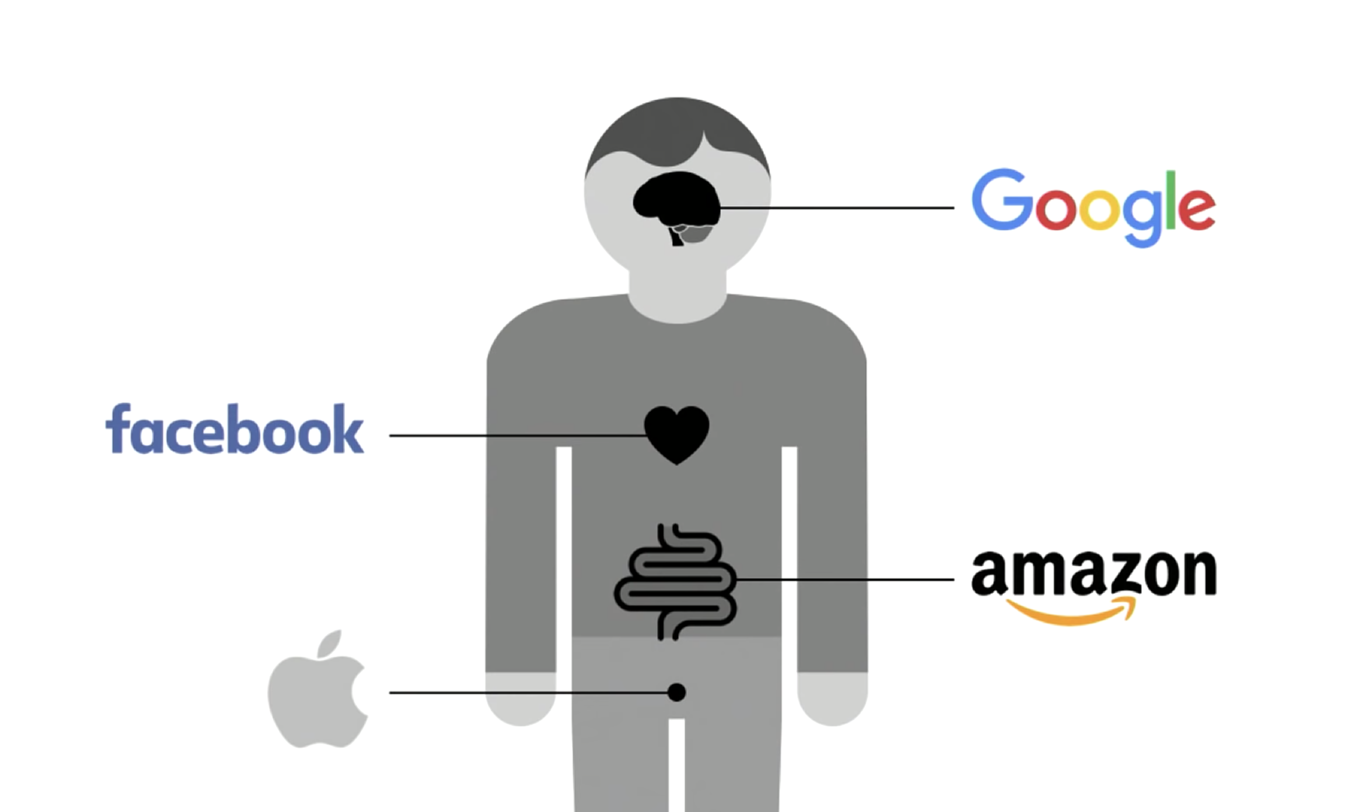Modern religion: what do people give to Google, Facebook, Amazon and Apple?

Scott Galloway is a curious character. It is enough to listen to one of his lectures in order to either be fascinated by his way of thinking or dislike the upstart. Uncle has created several successful businesses (last exit $ 155M), teaches marketing at NYU, writes sensible books.
In his latest book, The Four: The Hidden DNA of Amazon, Apple, Facebook, and Google , Galloway tries to explain the success of the four most influential tech companies through evolutionary anthropology. Original, controversial, exciting.
Key ideas:
1. Google is our modern god.
Since we got out of the caves, we have always needed some kind of super-being, a deity.
The brain is the main competitive advantage of our species. He may well ask difficult questions, but he does not answer them very well. As a result, more than 3,500 different gods filled this gap. They compete for the right to be our only source of truth.
If you look at all that you type under your userpic in Google, you can be sure that Google knows more about you than your partner, your mother or you yourself. Google knows when you are about to become engaged and are about to divorce, what are you sick and what are you afraid of getting infected with. At some point, Google will know when you die.
2. Facebook - the god of love and care
The peculiarity of our species: we can not live without love and care. Unloved children with good nutrition grow less healthy than their favorite children with poor nutrition.
A strong predictor of whether you will live to 100 years is the number of people you love. Caring to release a hormone that regulates cholesterol. Care is an instinct.
Our need for love is what Facebook works on. Basically, through texts and pictures (FB, IG), which create empathy and support a large number of first and second order connections.
3. Amazon - the god of consumption
Since primitive times we have been taught that the more something, the better. The best business strategy is to give more for less.
A country offering more for less money is the fastest growing economy. Now it is China. A company that offers more for less money is the most valuable company in the world. Now it is Amazon.
Payment for the absence of hunger - depression, gluttony and diabetes. But this all has a delay of 20 years, so open your wardrobe and look: you have 10x - 100x more things than you need.
The realization that you have just enough is immediately displaced by a fresh offer from Amazon and an instinctive reaction to grab more, while there is an opportunity.
4. Apple - the god of reproduction
The strongest instinct that we have is self-preservation instinct. But despite the fact that tomorrow will be in the headlines of Medusa or NYT, the probability of dying at the hands of another person or state is now the lowest in the history of our species. [Perhaps this is why traditional media are experiencing increasing difficulties in the modern technological world. - approx. A.I.]
The second most powerful instinct is the instinct of reproduction. We do a lot to be attractive to other people. Even if we are in long-term monogamous relationships, our need to signal to others about our merits does not go anywhere.
We pay $ 1,200 for a $ 268 set of components, chips, and sensors. This set signals the world that you are part of the caste of innovators, part of the creative class. You live in the city, you earn enough money, you are a good option for breeding.
This irrational, but effective appeal to our hearts and reproductive systems has led to the fact that Apple is now the most expensive company in the world, which in the next quarter will make more profit than Amazon in its history as a public company
Understanding these evolutionary psychological features can be used for business scaling, investment strategies, or self-development.
Originally published on @ponchiknews in the TV channel on grocery thinking, cognitive psychology and entrepreneurship.
